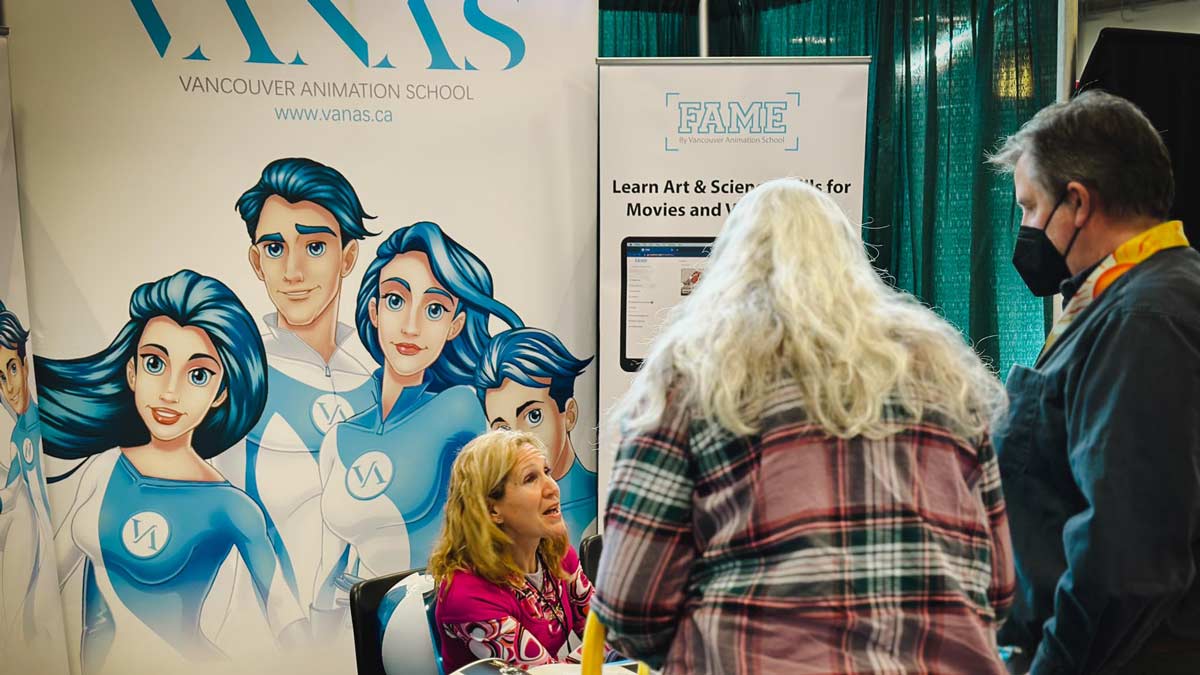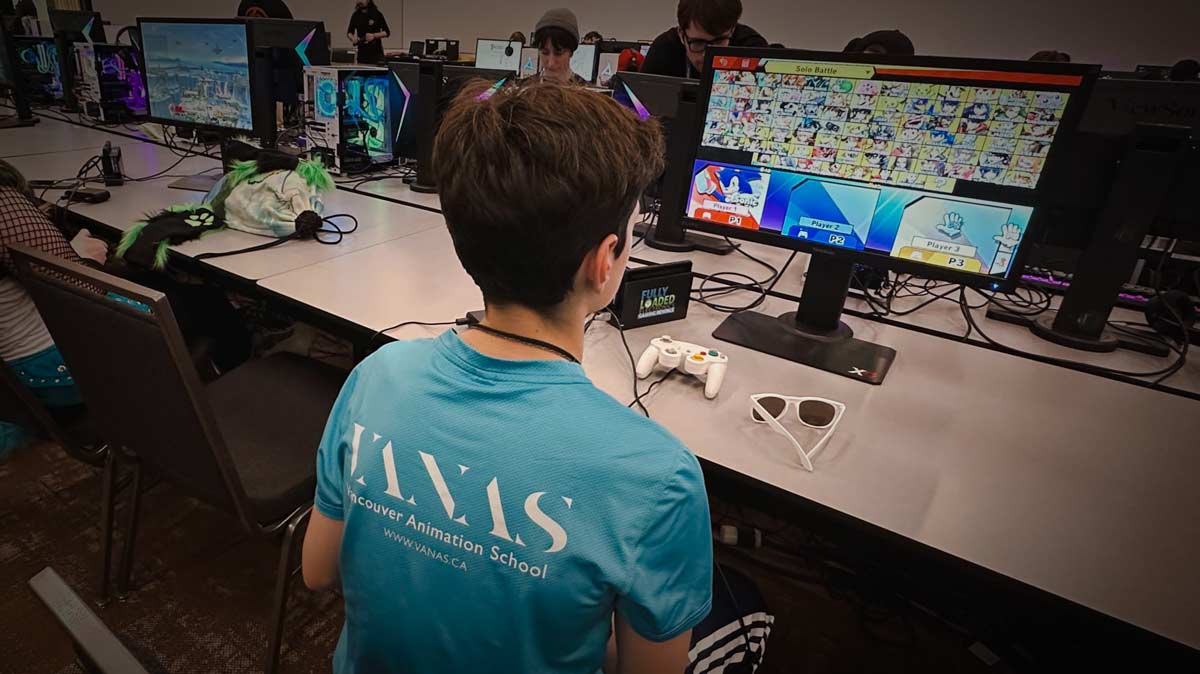 Image: VANAS exhibiting at Comic Con
Image: VANAS exhibiting at Comic Con
Author: VANAS
The Evolution of Comic Cons
Comic cons have become a global phenomenon, bringing together fans of all ages with their celebrations of pop culture. These conventions, once humble gatherings of comic book enthusiasts, have transformed into massive events that attract celebrities, cosplayers, and fans from around the world.
Let's explore the fascinating evolution of comic cons, their purpose, the reasons behind their widespread popularity, and the diverse attendees who flock to these events.
How Did Comic Cons Start?
The origins of comic cons can be traced back to the early 1970s when the first conventions were organized by comic book fans eager to share their passion. The first notable comic con, the San Diego Comic-Con (SDCC), began in 1970 as a modest event attended by just a few hundred people. Founded by a group of comic book lovers, including Shel Dorf, Richard Alf, Ken Krueger, and Mike Towry, SDCC was initially called the Golden State Comic Book Convention. It aimed to bring together fans, artists, and writers to celebrate and discuss comics.
These early conventions primarily focused on comic books, science fiction, and fantasy literature. Over time, the scope of comic cons expanded to include movies, TV shows, video games, anime, manga, and other elements of popular culture. This broadening of interests helped comic cons grow in popularity and attract a more diverse audience.
What is the Purpose of a Comic Con?
The primary purpose of a comic con is to celebrate and promote various aspects of pop culture. These conventions provide a platform for fans to connect with each other, meet their favorite creators and celebrities, and immerse themselves in a shared passion for comics, movies, TV shows, and more. Comic cons offer a variety of activities, including:
- Panels and Q&A Sessions: These sessions allow fans to hear from and ask questions to creators, actors, and other industry professionals.
- Exhibit Halls: Vendors and exhibitors showcase and sell merchandise, collectibles, artwork, and other pop culture-related items.
- Autograph Signings and Photo Ops: Fans can meet celebrities, get autographs, and take photos with their favorite stars.
- Cosplay Contests: Attendees dress up as their favorite characters, showcasing their creativity and craftsmanship in elaborate costumes.
- Screenings and Previews: Comic cons often feature exclusive previews of upcoming movies, TV shows, and games.
 Image: VANAS alumni Francine Delgado at ECCC
Image: VANAS alumni Francine Delgado at ECCC
Why Did Comic Cons Spread in Every City?
Several factors contributed to the rapid spread of comic cons to cities around the world:
- Growing Popularity of Pop Culture: As comics, movies, and TV shows gained mainstream acceptance, the demand for conventions celebrating these interests increased.
- Community Building: Comic cons provide a sense of community for fans, offering a space where they can connect with like-minded individuals.
- Economic Impact: Hosting a comic con can significantly boost the local economy by attracting tourists and generating revenue for local businesses.
- Media Attention: High-profile events like SDCC garner extensive media coverage, raising awareness and interest in comic cons.
- Celebrity Participation: The attendance of celebrities draws large crowds and adds to the overall appeal of comic cons.
Who Attends Comic Cons?
Comic cons attract a diverse group of attendees, including:
- Fans: People of all ages who are passionate about comics, movies, TV shows, and other aspects of pop culture.
- Cosplayers: Individuals who enjoy dressing up as their favorite characters and showcasing their costumes.
- Creators and Artists: Comic book writers, illustrators, and other creators who want to interact with their fans and promote their work.
- Celebrities: Actors, directors, and other industry professionals who participate in panels, sign autographs, and promote their projects.
- Vendors and Exhibitors: Businesses and artists who sell merchandise, collectibles, and artwork.
Why Celebrities Attend Comic Cons
Celebrities attend comic cons for several reasons:
- Promotion: Comic cons are an excellent platform for promoting upcoming movies, TV shows, and other projects. Celebrities can generate buzz and engage with their fanbase.
- Fan Interaction: Attending comic cons allows celebrities to connect with their fans on a personal level, which can enhance their public image and build loyalty.
- Networking: Comic cons provide opportunities for celebrities to network with other industry professionals and explore new projects.
- Merchandising: Many celebrities can earn additional income through autograph signings, photo ops, and merchandise sales.
 Image: VANAS Kids area at Comic Cons
Image: VANAS Kids area at Comic Cons
List of Major Comic Cons
Here are some of the most popular and influential comic cons around the world:
- San Diego Comic-Con (SDCC): The largest and most famous comic con, held annually in San Diego, California.
- New York Comic Con (NYCC): Another major event, held in New York City, attracting fans and celebrities from around the globe.
- Dragon Con: A multi-genre convention held in Atlanta, Georgia, known for its diverse programming and vibrant cosplay community.
- WonderCon: Organized by the same team as SDCC, WonderCon is held in Anaheim, California, and offers a similar experience on a smaller scale.
- Emerald City Comic Con (ECCC): Held in Seattle, Washington, ECCC is known for its focus on comics and art, as well as its welcoming atmosphere.
- MCM Comic Con: A series of conventions held across the United Kingdom, featuring a wide range of pop culture content.
- Comic Market (Comiket): Held in Tokyo, Japan, Comiket is the world's largest self-published comic book fair, attracting over half a million attendees.
Frequently Asked Questions (FAQs)
What should I bring to a comic con?
Bring comfortable clothing, a good pair of walking shoes, a backpack for carrying purchases and freebies, a camera or smartphone for taking photos, and a water bottle to stay hydrated. If you plan to get autographs, bring items to be signed and a pen.
How much does it cost to attend a comic con?
Ticket prices vary depending on the event and duration. Single-day passes can range from $20 to $100, while multi-day passes or VIP packages can cost several hundred dollars. Additionally, consider travel, accommodation, and spending money for merchandise.
Do I have to dress up for a comic con?
No, dressing up (cosplaying) is optional. Many attendees enjoy wearing costumes, but it's perfectly fine to attend in regular clothing.
Can I meet celebrities at comic cons?
Yes, many celebrities attend comic cons for panels, autograph signings, and photo ops. Check the event schedule for opportunities to meet your favorite stars.
Are comic cons family-friendly?
Yes, most comic cons offer activities and programming suitable for all ages. Some events even have dedicated areas for children and families.
Key Takeaways
- Origins: Comic cons began in the 1970s as small gatherings of comic book fans and have since evolved into massive pop culture events.
- Purpose: These conventions celebrate and promote various aspects of pop culture, providing a platform for fans, creators, and celebrities to connect.
- Popularity: The spread of comic cons is due to the growing popularity of pop culture, community building, economic benefits, media attention, and celebrity participation.
- Attendees: Comic cons attract a diverse group, including fans, cosplayers, creators, celebrities, and vendors.
- Celebrity Participation: Celebrities attend comic cons to promote their projects, interact with fans, network, and sell merchandise.
- Major Events: Notable comic cons include San Diego Comic-Con, New York Comic Con, Dragon Con, WonderCon, Emerald City Comic Con, MCM Comic Con, and Comiket.
Comic cons have become a vital part of pop culture, offering unique opportunities for fans and creators to celebrate their passions. These conventions continue to evolve and grow, reflecting the dynamic and ever-changing world of pop culture. Whether you're a die-hard fan or a casual enthusiast, attending a comic con can be an unforgettable experience.
VANAS Online Animation School offers Animation, Visual Effects, and Video Games programs at VANAS https://www.vanas.ca/ to launch your career. Whether you're an aspiring animator or a dedicated fan, pursuing your passion can lead to exciting and rewarding opportunities.







